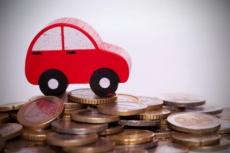 If it's time to trade in your old motor for something snazzier, here are some top tips for achieving selling success.
If it's time to trade in your old motor for something snazzier, here are some top tips for achieving selling success.
It's time to upgrade the car, but how do you get the best price for your old motor? The good news is that used prices have got a lot stronger since they hit rock bottom in 2008, so it's an excellent time to sell.
Now comes the hard bit: making sure that when you wave goodbye, you're clutching the maximum amount of money in your hand.
Who to sell to?
Essentially, there are three outlets for your car: a private buyer; a dealer trade-in; or a used car specialist. Which you choose can make a huge difference to the money you make.
A recent investigation by car magazine Auto Express found a massive gulf, with the price offered for an immaculate 2005 Audi A2 differing by nearly £3,000. Valued at £5,900 independently on a trade-in, the vehicle was pitched at £4,190 on webuyanycar.com, with a main dealer and a used-car dealer both offered £5,500.
But the best price was achieved through a private sale: £7,000.
Selling to a dealer
Sites such as webuyanycar.com are great for turning your car into cash fast, but you'll make more on a trade-in. This, of course, is just as easy as taking it to a dealer that will take the car off your hands in return for a discount on your next motor.
The key to success is to know what your car is worth. An easy way to find out is to consult one of the two price guides used by everyone in the car business, either CAP or Glass's (visit cap.co.uk or glass.co.uk). The latter's text service costs £4 and gives you three trade-in prices based on condition, plus a private sale price (always higher).
Armed with this information you can haggle the dealer higher, but beware, the higher the used trade-in price, the smaller the discount you'll be given on the car you're buying. And it'll mask what dealers call the 'price to change', which is the price of your new car minus your trade-in. Because trading in sounds like an instant discount, you feel less inclined to push for a good price.
The final price will also depend on what the dealer is going to do with the car. For main dealers, according to Glass's managing editor Adrian Rushmore: "Anything over four years old would be considered a trade car rather than a retail car."
This means instead of selling it themselves, they'll throw the car into an auction and take what they can get for it - a riskier venture than leaving the car on their forecourt and one that's less likely to turn a profit.
If it is a car they want to sell, they'll look very carefully at the condition it's in - if it's scruffy, then it might eat into the dealer's profit too much to clean it up.
Preparing your car
As the Auto Express investigation found, dealers and sites such as webuyanycar.com will rarely test drive your car. However, they will look closely at its appearance.
The Webuyanycar valuer reckoned one small scratch knocked £101 off his offer for the magazine's Audi, meaning that hiring the services of a mobile paint or alloy wheel repairer for half that sum could pay for itself.
Human nature says that faults will be magnified in a ploy to pay less, so give buyers less to complain about. A discounted MOT (available for £27 from Halfords, for example) is money well spent to reassure private buyers there are no immediate problems, while copies of bills for past work are also very welcome.
Going for a private sale
Would you reply to this job ad? "Part-time sales work offered; flexible hours; commission only but good hourly rate achievable, own boss." If yes, then go the private sale route. It takes time and a bit of effort, but you will make money compared to a trade-in.
The best place to advertise depends on the car. If it is relatively new (less than five years old), autotrader.co.uk is a good, if expensive, option. Two weeks' advertising costs £35, but there's every chance you'll need longer.
Pistonheads.com is free and good for enthusiasts' cars, or if your car is worth less than £3,000 try gumtree.com/cars, the modern equivalent of your local paper - which is also free.
Some key advice is to price your car carefully against similar models online (no need to pay for a valuation), and be prepared to come down a couple of hundred pounds to satisfy the British desire to haggle for cars.
Then clean it and take five clear photographs, but don't mask the numberplate: buyers appreciate being able to check up on the car's history before calling the seller.
And then wait, and stick to your advertised price. If it's priced right, someone will buy it.
These days, because the internet allows for long descriptions and plenty of photos, the time-wasting tyrekicker is a dwindling breed. But they're still out there, so be prepared for a few offering two grand less than you asked.
You also have to be firm on asking for insurance to cover the test-drive (where buyers will be listening out for strange clonks), and vigilant in ensuring they're not left alone in the car with the key.
A catch-all phrase that can range from assessing the price of a property or vehicle before offering it for sale or the net worth of assets in an investment portfolio to the prices of shares on a stock exchange.